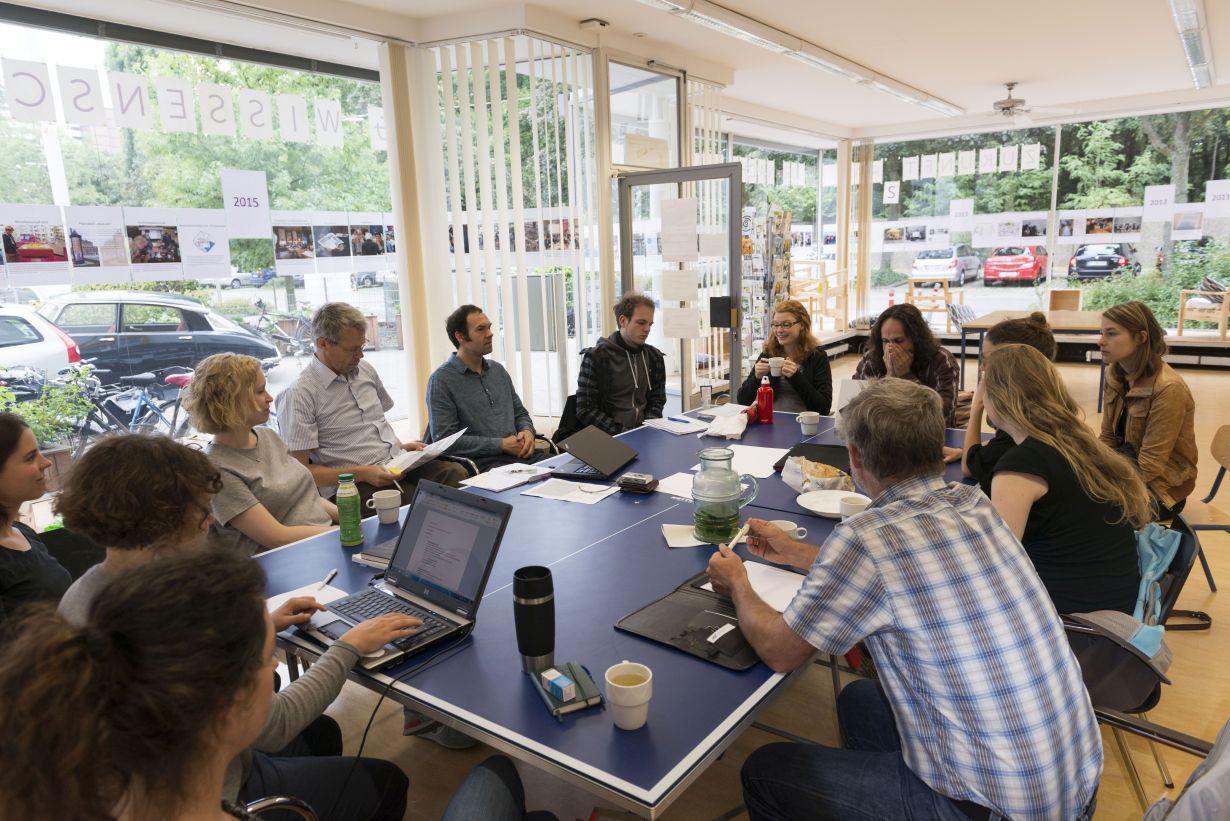With the aim of making the transformation of the German energy system comprehensible to the public in a new way and at the same time developing new approaches to participation, Karlsruhe Institute of Technology (KIT) kicks off the “Energy Transformation in Dialogue” project in June. Scheduled to run for four years and sponsored by the Helmholtz Association using special funds, the project is set to be stabilized from 2020 under the umbrella of the emerging “Karlsruhe Transformation Center for Sustainable Futures”.
The energy transformation, defined as the integration of electricity, heat and mobility into a comprehensive grid powered by renewable energy sources with central and decentralized structural elements, not least is an enormous social challenge. The large-scale construction of wind power and biomass plants, the space-changing development of energy grids, but also factors such as changing conditions of use and price structures directly affect citizens and consumers.
The basic idea of the newly launched “Energy Transformation in Dialogue” project is that a profound turning point in a society’s way of life and economy such as an energy system transformation can only be achieved in the long term if it is accompanied by a good level of information and factual possibilities of participation. “With our initiative we want to contribute to a common understanding on the energy transformation in society as a whole – by reviewing and providing information, offering advice and training, and bringing together completely different players from research and society,” says joint project leader Dr. Volker Stelzer from the Institute for Technology Assessment and Systems Analysis (ITAS) at KIT.
To this end, experts in transdisciplinarity and systems analysis at KIT are preparing formats for transfer of knowledge and participation. Offering a differing participation intensity and range, these formats are geared toward both the broad public and specific groups of players – such as the energy economy, industry, civil society and consumer associations, but also teachers, energy consultants, students and early adopters. The following is planned in detail:
- Explanatory videos
- “Sustainable Energy” tour
- Energy Scenario Workshops
- Transdisciplinary Project Seminars
- Town Hall Meetings
- Real Experiments.
“In the case of all these measures it is very important for us that the dialogue on energy transformation, how we want to start it or intensify it, isn’t a one-way street,” says joint project leader Dr. Andreas Seebacher from ITAS. “It is, in other words, about conveying knowledge and igniting learning processes, but also about feeding input from society back into research and making it fruitful there.” The Institute for Technology Assessment and Systems Analysis at KIT can use its experiences, know-how and structures in connection with the two internationally recognized real-life labs operating in Karlsruhe, “District Future – Urban Lab” and “Urban Transition Lab 131”.
To stabilize and institutionalize the “Energy transformation in dialog” project and other activities for the bi-directional transfer of knowledge, KIT is building on the “Karlsruhe Transformation Center for Sustainable Futures” (KAT). “From 2020,” says initiator Dr. Oliver Parodi from KIT, “KAT as a stand-alone facility will provide an infrastructure and know-how for carrying out exchanges of knowledge, training and consulting as well as for research, teaching and innovation for sustainability transformation.” Project partners include the city of Karlsruhe, the public utility of Karlsruhe and the Karlsruhe energy and climate agency. Together with them, KIT and the Helmholtz Association strive for KAT to become one of the world's first long-term real-life labs – in other words a beacon of sustainability transformation.
The Helmholtz Association of German Research Centers uses special funds to promote the “Energy Transformation in Dialogue” project as one of its most innovative projects in the transfer of knowledge. The funding for the next four years amounts to 1.2 million euros, half of it provided from the Helmholtz Initiative and Networking Fund and the other half from KIT.
KIT is actively and extensively involved in the research on the transformation of the energy system. This is often centered on technology, but increasingly also on social sciences and humanities to account for socio-technical complexity.
In close partnership with society, KIT develops solutions for urgent challenges – from climate change, energy transition and sustainable use of natural resources to artificial intelligence, sovereignty and an aging population. As The University in the Helmholtz Association, KIT unites scientific excellence from insight to application-driven research under one roof – and is thus in a unique position to drive this transformation. As a University of Excellence, KIT offers its more than 10,000 employees and 22,800 students outstanding opportunities to shape a sustainable and resilient future. KIT – Science for Impact.

